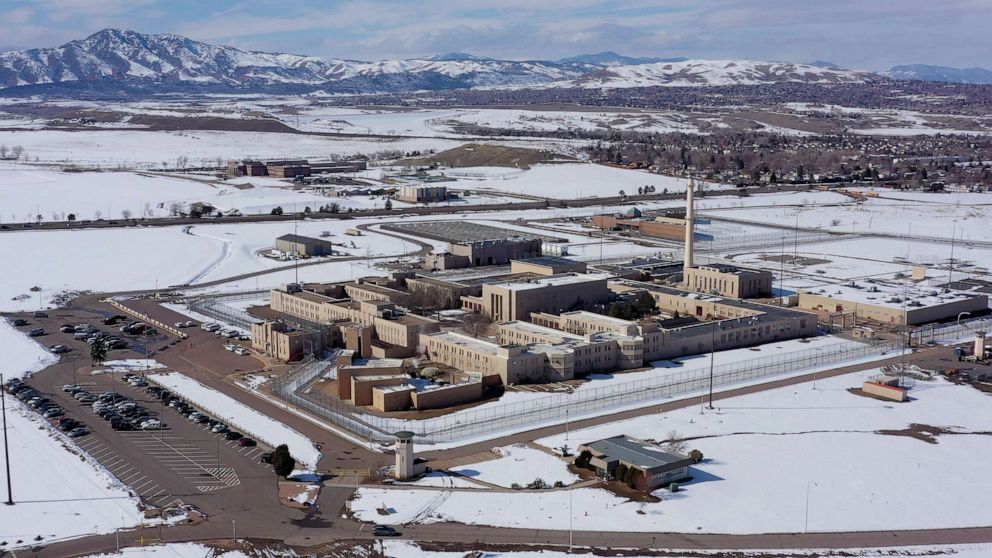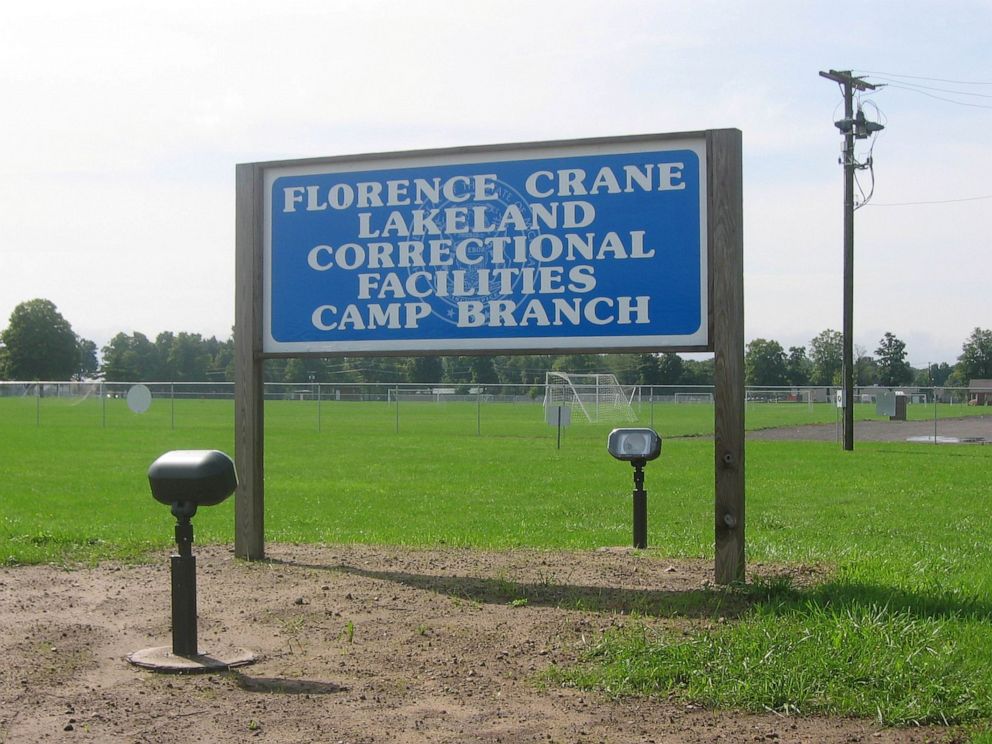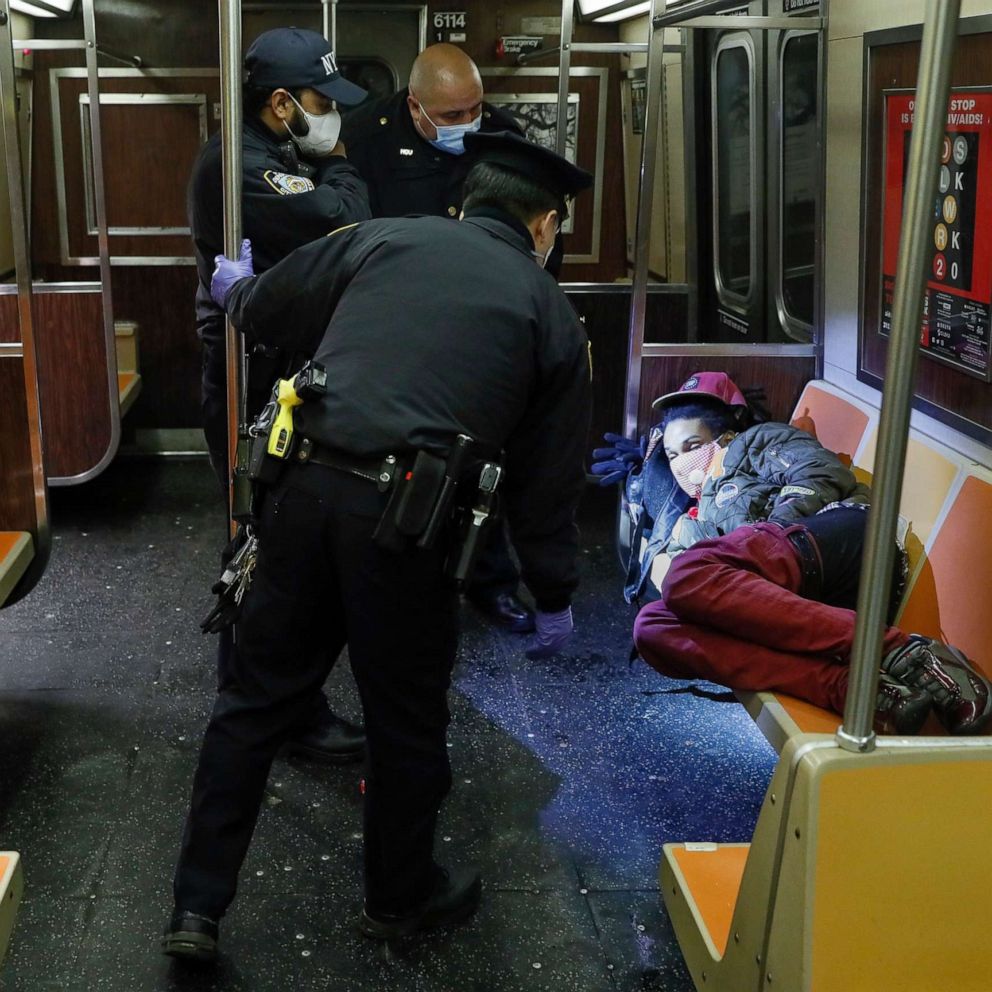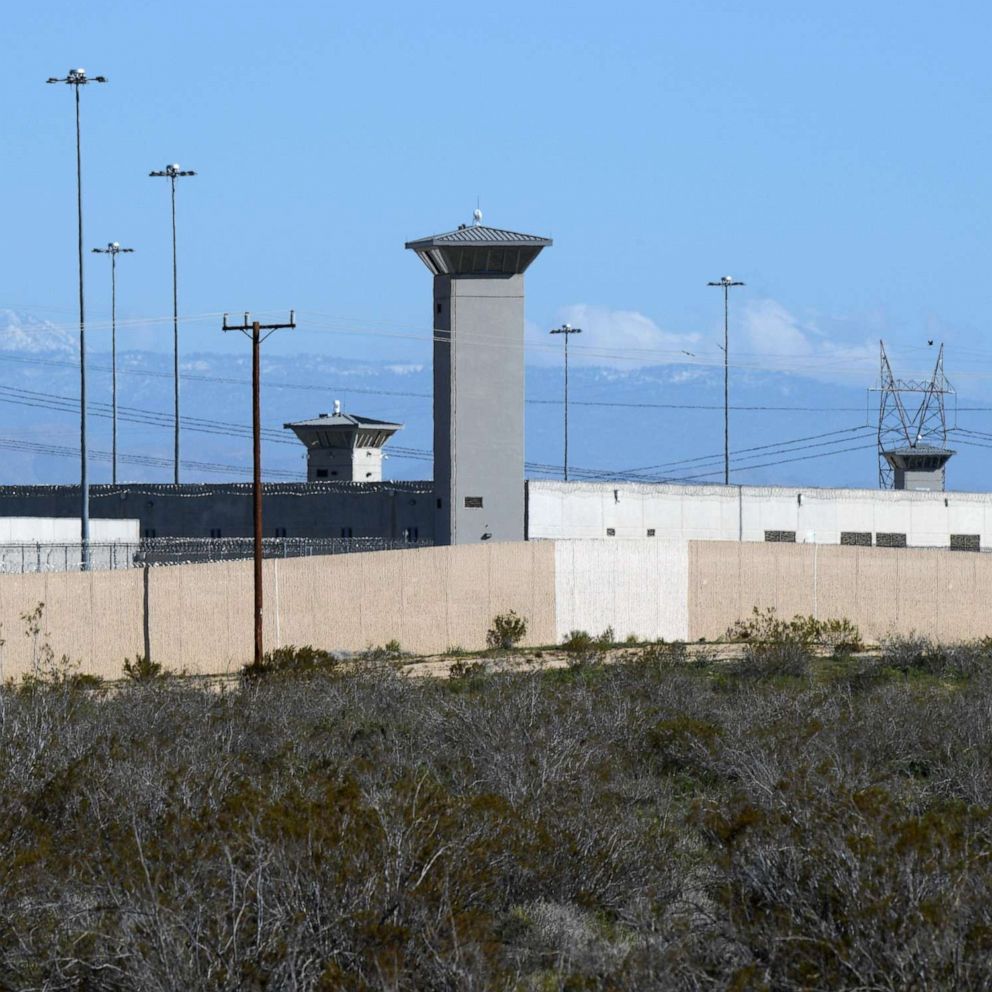Over 5,000 corrections officers have contracted COVID-19
The pandemic continues to rage on inside prisons.
As the novel coronavirus ravages prisons around the country, over 5,000 state and federal correctional officers have tested positive for the virus, data compiled by ABC News shows.
There have been 5,002 cases, including over 4,600 state correctional officers that have contracted the virus, with New York being the state with the most correctional officer cases.
"If you look at how it's tracked across the globe, you'll see that this thing runs through a correctional facility like a brushfire, and it doesn't stop until it runs out of people, basically," Andy Potter, the executive director of the Michigan Corrections Organization and the founder of the One Voice Initiative, told ABC News. "We've always said we believe that we were behind the eight ball to begin with."
Potter, whose union represents over 6,000 officers in Michigan, stressed that governors weren't doing a bad job, but they could "lead a better plan of conversation and communication with those corrections front-line staff."
The Michigan Department of Corrections has not responded to ABC News' request for comment.

The New York Department of Corrections, in a press release, thanked corrections officers for their service during this week's National Corrections Officer week.
Federally, over 350 officers have tested positive for the virus.
Shane Fausey, the national president of the Council of Prison Locals, told ABC News that there are likely more federal cases of officers, but they aren't reported because of the lack of testing.
"They're not testing everybody," Fausey said. "As a matter of fact testing is extremely limited."
The Bureau of Prisons told ABC News that they "have developed a letter for staff who are in close contact of a COVID-19 positive individual to provide to the local health department to ensure such persons receive priority COVID-19 testing. Because staff are typically tested in the community, we are unable to provide the total number of correctional officers that have been tested."
On the state level, testing in Michigan is also a problem, officials say.
"We're struggling with getting officers tested," said Byron Osborn, president of the Michigan Corrections Organization. "We believe that the state ... [should] be proactive and kind of try to get in front of this too, so the rest of our facilities aren't impacted. We're advocating for staff to be tested."
The Bureau of Prisons told ABC News in a statement that they have a six-phase plan to help slow the spread of COVID-19 in the federal prison system.
"In response to COVID-19, the BOP has instituted a comprehensive management approach that includes screening, testing, appropriate treatment, prevention, education, and infection control measures," the agency said in a statement. "We are deeply concerned for the health and welfare of those inmates who are entrusted to our care, and for our staff, their families, and the communities we live and work in."
Another problem that has been plaguing both federal and state institutions is severe understaffing, a problem that is only amplified by the pandemic.
"The pandemic has completely overrun the system; the system wasn't operating normally," said Fausey, who represents over 30,000 officers at prisons around the country. "Now you've completely overrun its limited staffing resources. And that's not even including the staffing shortage we had in medical positions. We've had that for quite a few years."
Fausey also said that at the Metropolitan Correctional Center in Manhattan, where disgraced financier Jeffery Epstein died by suicide last August, officers are sometimes being forced to work 16-hour days.
"As of April 5, 2020, the Correctional Services Department at the Metropolitan Correctional Center (MCC) New York has been working a 12 hour on, 12 hour off schedule. Officers on average are working 42 hours per week," the Bureau told ABC News in a statement.
He said that his members are frustrated with how the bureau has responded to this crisis and that the bureau doesn't "want the public to know how bad it is."
Across the country, 38 corrections officers have died due to COVID-19, according to the One Voice Initiative.

In one instance of a possibly missed case, Fausey said there should be no debate as to whether or not a 39-year-old case manager at United States Penitentiary, Atlanta died due to COVID-19.
Robin Grubbs died late last month after being promoted at the facility. The bureau stopped short of calling her death related to COVID-19, because the virus was found during the autopsy but the autopsy was incomplete, BOP said.
The union, however, said that this was a definite case of COVID-19 and it should be recognized.
"Instead of saying we've lost somebody -- it's terrible, it's heartbreaking -- the bureau puts out this press release, 'Well the autopsy was inconclusive and we're not really sure how she died,'" Fausey explained. "Why would you put out a defensive statement to all the employees that are grieving the loss of a young lady that they love dearly? Ms. Grubbs' friends and family deserved compassion and understanding. Robin deserved better."
Fausey added that officers are "human beings" and what's often shown in Hollywood movies isn't an accurate representation of what goes on inside institutions.
The front-line workers are the backbone of these institutions, Potter said, and they are the people who are holding facilities together and stressed that the only way that it can be solved is for corrections staff across the country to come together.
"I'm telling you, if you're tracking what's going on around the United States, it's just going to get worse before it gets better," Potter said. "Just because it clears up in one facility doesn't mean it's not going to spread. We know we know how aggressive it is."







